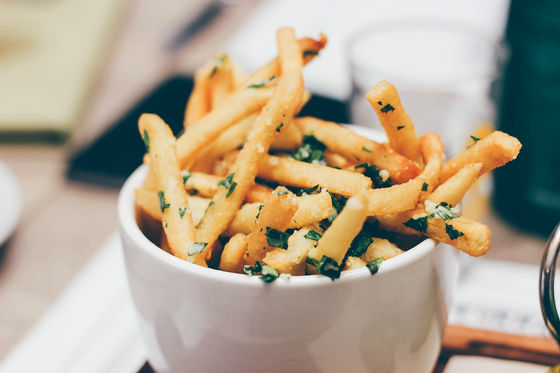Is salt bad for your health?

byJason Tuinstra
It is known that taking too much salt is known to lead to hypertension, but the question comes to mind: "Well then, is it too bad for you to take too much salt?" The answer to this question may become evident by the investigation in the prison.
Is Salt Bad? A Prison Study May Hold the Answer - The Atlantic
https://www.theatlantic.com/health/archive/2018/05/is-salt-actually-bad-for-you/560468/

For decades, public health authorities urge people to "refrain from taking salt." Although refraining from intake of salt leads to a decrease in blood pressure and as a result it is thought that the incidence of heart disease will decrease, but some researchers say that guidelines by public health authorities are unscientific, We have examined the relationship between heart disease and salt intake over the period.
In such research, the current attention is "How much blood pressure changes in a short period of time by randomly assigning low salinity or normal meal to thousands of people, in the case of long term view We will investigate to what extent the incidence of heart disease changes. " The survey was proposed by Daniel Jones, an obesity researcher who works at the Medical Center in Mississippi State because the existing data suggests the relationship between salt and heart disease well, but there is no more Investigations should be conducted under a controlled and controlled environment. "
However, in order to examine the relationship between salt intake and hypertension by having subjects eat low salt diet or normal diet for a long time, there is a difficulty that researchers keep preparation of subject's meals for a long time Therefore, so far only short-term investigations were done. In the first place, do volunteers participate in the survey continue to eat only the meals that are offered for a long time? There is also a question.
So, the research team came up with an idea of conducting surveys on people who already had a controlled diet, and finally came up with the option of "conducting surveys in jail". This proposal came in 2018 on Hypertension of academic journal on hypertensionAnnouncementIt has been.

byAndré Robillard
However, in order to conduct research in prison, it seems necessary to receive funds from the federal government and still fall under one of the following five. According to Mr. Jones, it is said that it falls into the fifth category when pursuing long-term follow-up in a prison, but there is also a necessity to "fund from the federal government" in the first place.
1: Study on imprisonment or criminal acts themselves
2: Survey of prisons as facilities
3: Investigation of health conditions that unequally affect prisoners such as drug addiction or hepatitis
4: Epidemiological research on the spread of disease and risk factor
5: Research that prisoners can help in the investigation
In addition, when research is realized, by providing either "meals currently provided at jail" or "low sodium diets with less than 2300 milligrams per day" at prisons, the incidence of salt intake and the incidence of heart disease It will be examined the relationship. Individual prisoners can not choose which one to eat, but it seems possible to decide whether to allow health data collection for investigation.
The average daily sodium intake of the average American is said to be 3400 milligrams. From this point of view, "Low sodium diet less than 2300 milligrams per day" means a thin taste. In short, it is "healthy diet", but in bad terms it is "unfriendly meal", and indeed in prison there were also behaviors of low-sodium foods that did not appetite as a kind of punishment. For that reason, proposals have also been made that prisoners opposed to low sodium diet should be able to escape from the study subject.

byStephanie McCabe
There is also no way to accurately monitor prisoners' meals. As Aaron Littman, a lawyer at the Southern Human Rights Center point out that prisoners share food and have to abandon their meals, as long as the prisoners eat the meals provided as it is not. Many of the prisoners are purchasing and eating salty snacks such as potato chips etc. When Mr. Jones et al. Investigate in prison, it is important to first grasp the eating habits of the prisoners Is required.
Although it is possible to deal with this by restricting the sale of snack pastries with high salt content, Kerramett Reiter, a criminal scholar at the University of California at Irvine, said, "In snacks snacks are functioning as currencies, ramen There is no fun except for snacks and dritos, beef sticks and a variety of other foods. "It is highly possible that depriving prisoners the only fun of snack confections could lead to confusion in prison.
Besides, there are indications that prisoners are a group of people far away from the general population, so it is difficult to generalize the data collected in prisons. In general, prisoners have higher drug use rates and higher HIV and hepatitis C infection rates than the general population. This is also data that "Prisoner is not an ideal group as a subject of health survey", but it can safely be said that prison is the only option to conduct a long-term salinity intake survey, Mr. Jones says, "We are seeking advice widely about whether our idea is insane."
Related Posts:







